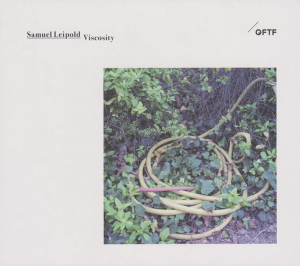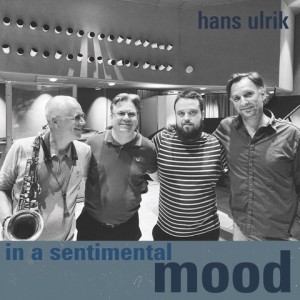Swiss guitarist Samuel Leipold has released an interesting and ambitious album on November 20. ‘Viscosity’ features Samuel as soloist. The inspiration for the songs came from studies on contemporary music and includes Japanese composer Toru Takemitsu, overtone compositions by French composer Gerard Grisey or minimalistic work by US composer Morton Feldman.
Samuel developed and composed the material on the album over a period of two years where he made little notes of sounds and intervals during practicing. His journey on sounds and how the fit together were the building blocks for the compositions.
He decided to put them onto a solo album because he found it very difficult to explain his ideas and the underlying esthetics to other musicians. Good friends also encouraged him to make this record
All songs were recorded during one session in October 2019 at a friends small studio in Lucerne, Switzerland.
The album starts with the title song ‘Viscosity’ where the guitar is accompanied by some cracking natural sounds which have been recorded just outside the recording studio.
The album continues with three compositions called ‘Sediment I – III’. These compositions have been developed for two concerts where Samuel was asked to perform as soloist. We hear Samuel’s passion for sounds, for clusters and for unconventional harmonies. The three songs are written out in detail and show Samuel Leipold’s expertise in composing contemporary music for the guitar.
‘Parsi’ plays again with ambient sound elements from which the guitar rises. Very nice guitar sound effects and great dynamics are the main characteristics of this tune.
‘Ex Machina’ is in contrast to the last song again a piece for solo guitar. The sounds and harmonies developed in this song are partly composed and partly improvised. Samuel explained to me that this is the perfect combination for him, playing with sounds and reacting spontaneously and intuitively.
‘Shō’ comes next and this song is based on the Japanese reed musical instrument with the same name. The chords are based on the clustered standard chords which the shō produces. Samuel is accompanied by a friend playing the bass clarinet. When I started to listen to the album I found this song being the easiest to listen to and it is still one of my favorite songs on the album.
The album continues with ‘Antimon’. Samuel told me that this song is based on a Villa-Lobos etude for classical guitar. He changed the tuning of the guitar where the A and the B-string are tuned a halftone below the standard tuning which creates this special sound. Adventurous but it expands our hearing conventions.
The album finishes with ‘Piano & Guitar’ a very spontaneous and improvised song where Samuel returns to ambient sound. Samuel told me that the inspiration for this song came from Morton Feldman’s ‘Piano and String Quartet’. Samuel plays the piano block chords and the guitar is very much alienated producing a very special and strange sound, more like a noise. However the song has a meditative character.
‘Viscosity’ is an album that combines avant-garde elements, ambient sounds, modern composition techniques and improvisational elements. It shows the musical exploration Samuel Leipold has taken and I find it great that he shares his ideas and personal expressions. I think to produce and release this album was quite a courageous step for Samuel but the result is remarkable and inspiring.
The album has a unique maelstrom where solo guitar songs and ambient sounds alternate but create uniform aesthetics and a homogenous experience. Please take your time to listen to this album, you will not regret it
More information about Samuel Leipold is available on his website:
https://www.samuelleipold.com/
And finally the Spotify playlist with the complete album:



